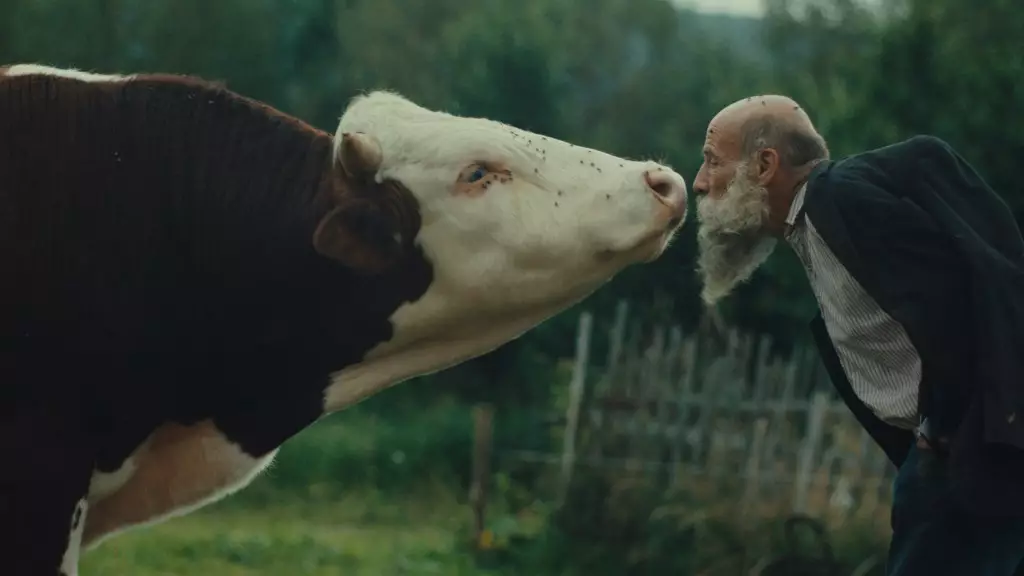In a world obsessed with appearances and societal standards, films like Miro Remo’s *Better Go Mad In The Wild* serve as stark reminders that true understanding lies beneath the surface. Mirroring the raw intimacy of classics such as *Grey Gardens* and echoing the rebellious spirit of Czech cinema’s historical milestones, this documentary dares viewers to question their biases about “normalcy.” The central characters, František and Ondřej Klišík, embody a radical form of authenticity—living intertwined with nature, their eccentricities laid bare, yet their profundity often overlooked. To criticize their lives solely based on their appearance or lifestyle is to miss the essence of human complexity. They challenge the archetype of societal success, instead choosing a path marked by self-sufficiency and unfiltered honesty, which is both unsettling and inspiring.
Living on the Fringes: A Conscious Rejection of Modern Norms
Set against the haunting backdrop of the Bohemian Forest, the Klišík brothers’ existence is a deliberate act of rebellion. Their rustic生活, surrounded by crumbling farmhouses and makeshift walls, symbolizes a refusal to conform to the sanitized narratives of contemporary society. Their home, divided yet united, conveys a subtle message about division and connection—flesh and bone, tradition and independence. The brothers’ refusal to participate in modem conveniences or societal expectations is a declaration of sovereignty over their identities. Such a lifestyle cannot merely be dismissed as eccentricity; it is a statement about the importance of autonomy and authenticity in a homogenized world. Their conversations, laced with philosophical musings and poetic reflections, elevate their rustic lifestyle into a transcendental experience—a testament to human resilience beyond material wealth.
Historical Resonance and Forgotten Stories
Remo’s film subtly hints at a deeper history—one where these men played a role in Czech history during the Velvet Revolution. Their involvement in distributing anti-regime pamphlets signifies a consciousness that extends beyond the idyllic wilderness they inhabit. Yet, the film’s restraint, withholding explicit backstory, serves a purpose: it invites viewers to interpret their lives beyond the political lens, acknowledging the multifaceted nature of human agency. This deliberate ambiguity echoes the tradition of Hánák’s *Pictures of the Old World*, which criticized the illusions of progress and highlighted the overlooked struggles of rural populations. Both films serve as cultural testimonies, emphasizing dignity and resistance of those marginalized by history’s sweeping narratives.
Juxtaposition of Eccentricity and Enduring Wisdom
The charm of *Better Go Mad In The Wild* lies in its portrayal of the brothers’ eccentricities—nudity, drunken revelries, and candid bickering—yet beneath these surface elements is a wellspring of wisdom. Their conversations evoke a poetic landscape, revealing insights about life, nature, and love that defy simple classification. For all their crude humor and messy habits, they exhibit a profound understanding of their environment and history, having become autodidacts who crafted their worldview in defiance of formal education. Their stories evoke a sense of nostalgia for a lost world—one where knowledge isn’t packaged in classrooms but earned through lived experience, passion, and resilience.
The Cost of Authenticity and the Limits of Observation
However, the film’s approach—dissecting their lives with gentle curiosity yet holding back in-depth exposition—elicits mixed feelings. On one hand, it preserves the authenticity of their existence, refusing to manipulate or glamorize them. On the other, it leaves audiences craving a deeper understanding—some narrative or contextual anchoring that confirms the significance of their lives in broader societal terms. The brothers’ candid openness, contrasted with the film’s reluctance to probe further, results in a delicately balanced but ultimately incomplete portrait. Their spontaneous antics, from waving at trains to discussing mole ecology, entertain but also risk trivializing their deeper stories, which might have benefited from a more nuanced exploration.
Reclaiming Humanity Through Eccentric Lives
Ultimately, *Better Go Mad In The Wild* offers a potent meditation on what it means to live authentically. It suggests that true fulfillment may lie outside societal constructs, in the embrace of one’s origins, passions, and idiosyncrasies. The film dares us to reconsider our preconceptions, to see value in lives that defy convention and to recognize that integrity often exists in moments of chaos and imperfection. Far from being mere eccentricities, the Klišík brothers symbolize a resilient human spirit—one that refuses to be subdued by the pressures of modernity. Their existence, strange and rustic as it appears, becomes a mirror reflecting our own unconscious longing for genuine connection and self-discovery amid the chaos of contemporary life.

